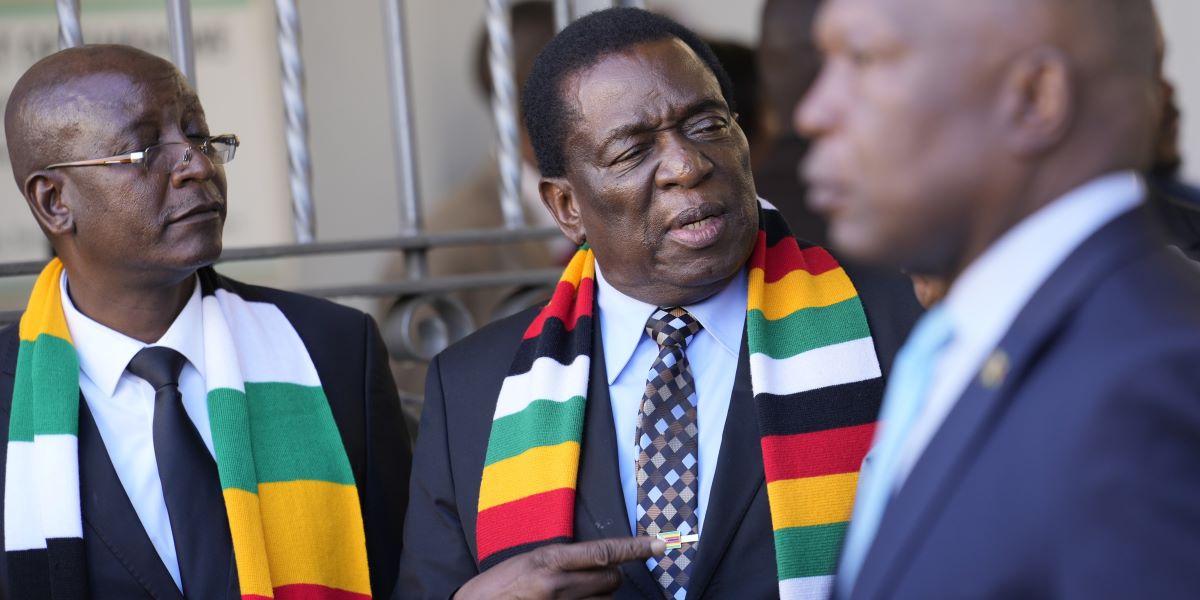On 23 August, in just under a month, elections will take place in Zimbabwe to elect the president and renew the parliament. Since 1980, Zimbabwe has always been governed by the same party: the African National Union of Zimbabwe – Patriotic Front (ZANU-PF), which until 2017 was the party of dictator Robert Mugabe and in the last five years of his successor, Emmerson Mnangagwa.
In this year’s elections, however, partly due to the country’s economic crisis, opposition parties are more competitive, and for the first time in almost 45 years they have a real chance of obtaining the presidency. Civil society figures, members of the opposition and outside observers, however, doubt that the elections can be held regularly, and fear that fraud and irregularities by ZANU-PF will nullify the opposition’s chances of winning.
There are eleven presidential candidates. The outgoing president Mnangagwa, who is 80 years old and seems to be the favorite, has re-elected. The main opposition figure is Nelson Chamisa, who is 45 and is the leader of the CCC party (Citizens Coalition for Change), founded in 2022.
According to a survey done by Elite Africa Research and published by the South African newspaper Daily Maverick, 47.6 percent of respondents in June 2023 said they would vote for Chamisa, compared to 38.7 percent of potential Mnangagwa voters. It’s a percentage that needs to be taken with some caution: polls in the country aren’t thought to be particularly reliable. Furthermore, in Zimbabwe the proper conduct of the electoral process continues to be contested and the authoritarian regime restricts citizens’ freedom of expression.
In recent months, candidates from opposition parties, most notably Chamisa of the CCC, have denounced a increase of cases of intimidation and violence by the ZANU-PF party. According to the last annual report 2023 of Freedom House (an American NGO that analyzes the electoral processes, participation and freedom of expression of each country), Mnangagwa’s party has strong control over the media and the Zimbabwe Electoral Commission, i.e. the body that manages and supervises the elections.
The CCC party sseems to be mainly supported in urban areas, often by the younger sections of the population, unlike ZANU-PF which has consolidated support in rural areas of the country, the most relevant in terms of the number of votes.
The Republic of Zimbabwe is a country in Southern Africa with about 16 million inhabitants. It gained independence from the British colonial regime in 1980 after nearly a century of occupation. Among the movements that had fought for independence was ZANU-PF, an anti-imperialist pro-Soviet party led by Robert Mugabe who was elected prime minister in 1980 and then president in 1987. In the 37 years he remained in power, Mugabe distanced himself from Marxist ideology, imposed an authoritarian model of government and consolidated his power with repression.
In 2017, he forcibly resigned at the age of 97 after a non-violent coup organized by Mnangagwa (then vice president and head of the security services) and backed by the military. In the following year’s elections, which were billed as the country’s first democratic elections, Mnangagwa was officially elected with 50.8 percent of the vote, narrowly exceeding the 50 percent threshold needed to avoid running on the ballot. The results were actually contested by the opposition who denounced fraud and organized demonstrations in the square, violently repressed by the police.
According to a survey sponsored by Elite Africa Research, almost 70 percent of the citizens interviewed are critical of the political and economic management of the country. Zimbabwe is one of the countries with the highest inflation rates in the world. Since the beginning of the year, prices have increased by 86.5 percent and the currency (Zimbabwe dollar) is increasingly unstable: only in the last month has it lost over 50 percent of its value against the US dollar. There are frequent power outages and problems with the water supply. Unemployment is on the rise and corruption rates are very high.
Mnangagwa described this year’s election as an expression of a “mature democracy». But free participation in elections appears to be hampered by government measures to limit political engagement and freedom of expression. The cost of running for president has risen from $1,000 in 2018 to $20,000 in 2023. Linda Masarira – the only candidate in the election and head of the opposition LEAD (Labour, Economists and Afrikan Democrats) party – called it a discriminatory requirement.
Also criticized is the government’s decision to exclude Zimbabweans living abroad from voting (who according to the United Nations are a few million). Chamisa said ZANU-PF wants to exclude these votes because they risk favoring opposition parties. On 15 July Mnangagwa signed a bill that amends the penal code and makes anyone who speaks out “against the sovereignty and national interest of Zimbabwe” punishable by up to 20 years in prison, a decision which according to Amnesty International risks limiting freedom of expression and public participation.
